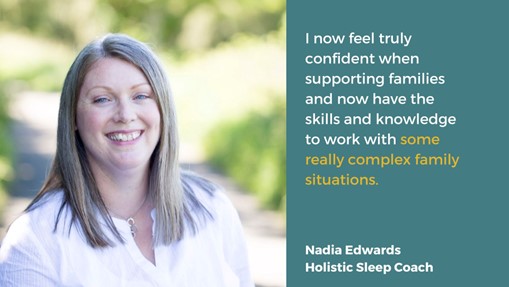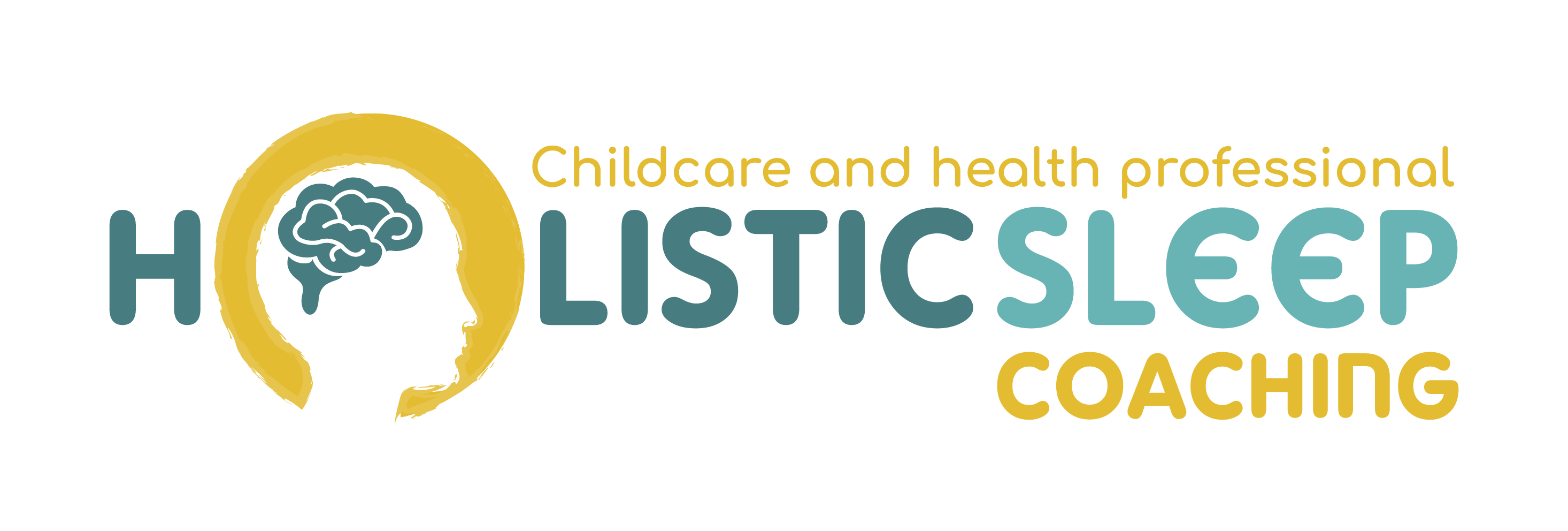Avoid Misdiagnosing Sleep Problems: Key Tips for Sleep Consultants
Have you ever supported a family with sleep and sensed that there was something more complex going on? Or tried proven sleep strategies that just don’t seem to be cutting it with this particular client? Wondering if you’re missing something?
Imagine if you could be the person who not only supported a family with sleep in a way that was respectful, compassionate, and protective of attachment, but also helped them address the underlying complexities responsible for their sleep challenges. If you’d love to be that person for the families you serve, then stick around because I’ll be explaining why sleep problems aren’t always about sleep, and why it’s dangerous to miss those underlying causes.
If you prefer a video format, click the video below.
As a paediatric nurse, I’ve always loved the puzzle that comes with working with children and families, and I now feel blessed to guide other incredible practitioners to take on the challenge of solving sleep mysteries. I’ve supported literally thousands of families over the last 15 years as a sleep coach and trained over 600 inspiring coaches internationally through our holistic sleep coaching program. Believe me when I say that if you are not up to speed with the occasions where sleep problems are actually health or feeding problems in disguise, you’re going to hit the wall with some of your clients.
By the end of this article, you’re going to understand why underlying problems affect sleep, and how a detailed assessment and asking the right questions will keep you and your families safe, and help get them to the best solution as fast as possible. Through our holistic approach to sleep, we leave no stone unturned to help families figure out what’s going on and what they can do to support their children, all while building parental confidence and prioritising responsiveness.
Understanding this process and building it into your practice was what helped propel Nadia’s success.[1] She told me that the comprehensive training on the program allowed her to feel confident working with families with more complex needs, including neurodivergent children and children with a health problem or disability.

Why You Can’t Treat Feeding or Health Problems with Sleep Solutions
One of the cornerstones of successful holistic sleep coaching is exploring underlying factors.
You can’t treat feeding, health, or relational problems with sleep solutions – aka… sleep problems aren’t always sleep problems.
It’s really common for a parent to reach out for support with sleep when there is actually something else going on. That’s not surprising because sleep is often the most obvious symptom. It’s also often the most difficult symptom. So it’s no wonder that so many parents assume that their child with a sleep problem needs a sleep solution.
And I’m not saying there is nothing wrong with the sleep pattern. But I’m saying that in some cases, the change in sleep pattern, or the ongoing struggle with sleep, may just be the most obvious symptom of something else.
Until you figure out with the family what the something-else is, any sleep solution you implement may not work as well as you or the parents hope.
What Kind of Problems Look Like Sleep Problems, but Aren’t?
So what problems (that aren’t primary sleep problems) impact health, development, and sleep?
Well, there are many conditions and underlying challenges that could have a profound impact on sleep. These issues may include health problems, developmental delay, sensory differences, neurodivergent sleepers. It may include medical needs, allergy, or the child may indeed have a sleep pathology.
Most children don’t have any sleep pathology, but of course, a small proportion of children do have conditions such as sleep apnoea or sleep-disordered breathing, restless legs, sleepwalking, and other conditions. We never want to discount the possibility that a child has a sleep problem that would be more appropriately addressed by the child’s medical practitioner. So if in doubt, suggest that the family keep a symptom diary and make an appointment with their usual doctor.
Is this beginning to make sense? Let me know in the comments if you’ve picked up underlying challenges as a result of assessing sleep!
What About Underlying Feeding Problems?
You’ve probably noticed I haven’t mentioned feeding problems so far. I haven’t forgotten, don’t worry!
Sleep and feeding issues very frequently go together, and sometimes it’s hard to unpick whether it’s a sleep or feeding issue because they’re so intertwined. We never want to blindly tackle a sleep problem that is actually a problem that would be better managed with specialist feeding support, so you need to know what is normal in terms of infant feeding behaviours and patterns whether the child is breast or formula-fed.



The reason is that suggesting sleep solutions without more in-depth knowledge of feeding solutions may not adequately and fully address the family’s goals and wishes. So, if you’re not sure, reach out to an infant feeding specialist or IBCLC. I know this sounds really obvious but breastfeeding problems require breastfeeding solutions, not sleep solutions. You might be able to mask some behavior with some sleep interventions, but you won’t get to the bottom of the sleep and feeding behaviours without a more holistic approach to tackling the whole problem.
It is very unusual that a generic sleep and feeding schedule is the right approach for most babies.
When you study research looking at large samples of children, strict schedules only work for 15-20% of all babies.
The rest of the families found them stressful, and there are also associations with overweight, lack of appetite regulation, and more cry-fuss behaviours, so this is rarely the right strategy. We definitely want to continue to responsively feed while also optimizing sleep in the gentlest way we can. We also need to be honest that stopping feeding to sleep or night feeds often won’t lead to an immediate improvement in sleep. In reality, you could just be removing the quickest and easiest tool that the parent has, only to find that it doesn’t solve the problem anyway….
Finally, a feeding problem such as poor latch, excessive air intake, overfeeding on a bottle, tongue tie, and other feeding issues can also impact sleep, infant growth, and health – so it’s vital that these issues are identified and referred to the most appropriate person.
How Do Underlying Problems Affect Sleep?
So what do all these problems have in common, and how do they cause sleep issues? Well, in very simple terms, anything that causes pain, discomfort, or dysregulation will impact sleep. Sleep occurs in the rest and digest state – the parasympathetic nervous system. Any time we’re feeling uncomfortable, stressed, anxious, in pain, hungry, cold… you name it… if it makes us feel anything other than relaxed and peaceful, sleep is going to take a hit.
And why is it so important to address these problems?
Well, hopefully, this is an obvious point, but firstly, it ensures that any problem that requires an intervention from another professional can be promptly dealt with. Secondly, this process of ruling out other problems keeps you safe and within your scope of practice. Thirdly, often, when those underlying conditions are addressed, the sleep improves spontaneously. It may not be fully resolved, but the family are usually in a much better place than they were. So even if you do need to try some additional sleep strategies, the sleep problem you are now addressing is a lot more manageable than it was before the underlying problem was identified and resolved.
How Do We Screen for Underlying Problems?
So when we think about those underlying factors, obviously it’s important to stay within your scope of experience and appropriately refer to other professionals,
but often a sleep coach is in a unique position of being able to sit with a family and give them the time that’s needed to unpick a situation.
This might be the first time a family has had an opportunity to talk and be listened to at length. So it’s not realistic to assume that the family will already have the right professional support lined up. You might be the person that points them in the right direction. This is where you need to make sure you’re asking the right questions. So, as part of a comprehensive holistic sleep assessment, as well as all the other aspects of sleep, family wellbeing, and context, you’ll need to ask about:
- Feeding issues
- Health needs
- Weight gain
- Comfort
- Psychosocial factors
- Regulation
- Potential sleep pathology indicated by restless legs, tooth grinding, snoring, and mouth breathing.
And refer on accordingly, while also supporting the family with sustainable sleep strategies.
Wrapping Up: Ensuring Comprehensive Support for Sleep Issues
In today’s post, we’ve explored how apparent sleep problems can often be health or feeding issues in disguise, why it’s crucial to screen for these underlying factors, and the key questions to include in your comprehensive assessments with families. Understanding and addressing these complexities is essential for providing truly impactful support as a sleep consultant.
If you’re passionate about supporting families in a holistic, evidence-based, and compassionate manner, we would love to connect with you. The first step towards enhancing your practice and gaining the confidence to tackle even the most challenging sleep cases is to book a call with us.

